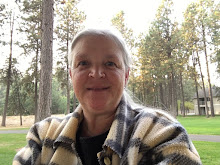
Still, in todays world, as our lives have gotten busier, even a small yard demands too much of us and often our yard and lawn requires the help of a professional.
Enter Paul Tukey. Paul Tukey is a man on a mission. He wanted to start a landscaping business and after successfully building a million dollar landscaping company he started suffering from nosebleeds and shortness of breath. His doctor told him to stop applying lawn chemicals and the problems ceased. Although Paul had stopped personally applying the chemicals to lawns, his company continued with offering chemical treatments for lawn care.
- Have your soil tested. Don't do anything to treat or feed your lawn until you know what the soil needs. The soil is the basis for a great lawn and should be at least 6 inches deep.
- Grow the right grass for your location and conditions. The most popular grasses grown are also the most needy when it comes to water and fertilizer. There are a lot of other options that might suite your particular situation.
- Water properly - Watering deeply and less frequently will encourage the grass roots to grow deep for moisture. This will help the grass survive drought periods. Watering in the early morning hours will get more water to the roots by avoiding evaporation and will allow the grass to dry. This keeps the environment undesireable for disease.
- Your soil is alive, especially if you stop killing everything with chemicals. The soil biology needs to be fed in order for the soil to feed your lawn. Organic matter feeds the soil which in turn nurtures your lawn.
- Rethink your mowing habits. Leaving the lawn clippings to decompose will feed your lawn naturally and supply 50% of your lawns nitrogen requirements. Keep your blades sharp and mow higher. The length of your grass blades are directly related to the length of the grass roots.
- Avoid synthetic fertilizers and soil ammendments. These can burn and any excess leaches out into the ground water. Use organic matter to feed and ammend your lawn. This helps build a healthy environment for your grass to grow in.
- Use a top quality compost as a soil additive. Both dry and liquid, a top quality compost supports the organic life in your soil. This is especially important when making a transition from chemical to organic.
- Treat weeds as messengers. They are telling you that there is a problem with the soil. Fix the soil and the grass will outgrow the weeds.
- Likewise, pests are messengers. Pests look for the weak, much like the predator in the wild. If a lawns environment is in balance, pests will not get a foot hold.
- Overseed - nature reseeds itself every year, renewing itself as the old dies out. Your lawn will go through this same process, however because of mowing practices it never has a chance to renew itself by setting seed. Therefore, you need to do it during the season that is best for your location.
There are many examples of successful organic lawns. This can be done. It must be done for the health of our families, pets, and the environment.

1 comment:
I have placed your www. on my Web site. There is a lot of good information that my shoppers will enjoy reading.
Post a Comment